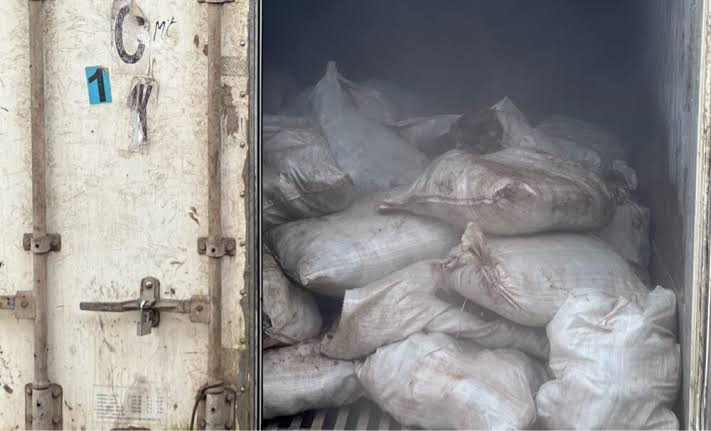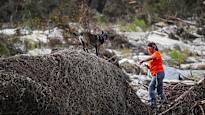Operatives of the Nigeria Customs Service made a startling discovery on the Kaduna–Abuja Expressway when they intercepted a 40-foot container filled with donkey genitals. This eyebrow-raising revelation was unveiled by the Comptroller-General of Customs, Mr. Adewale Adeniyi, during a press briefing in Abuja. The container, suspected to be earmarked for illegal export, was unearthed on a fateful Friday evening, June 5, 2025, around 9 pm. The seizure was the result of a meticulously orchestrated surveillance operation conducted by officers from the Special Wildlife Office and Customs Intelligence Unit.
Representing the CG at the event, the National Public Relations Officer of the Service, Abdullahi Maiwada, emphasized that this interception was part of the Customs Service’s escalated crackdown on illegal wildlife trafficking in Nigeria. This incident sheds light on the escalating involvement of transnational criminal networks in exploiting endangered species for illicit gains. Maiwada, speaking at the NCS Government Warehouse in Karu where the confiscated consignment was formally handed over to the National Environmental Standards and Regulations Enforcement Agency, stressed the significance of this seizure as a testament to the pervasive nature of illegal wildlife trade networks in Nigeria.
He stated, “In line with our efforts, I am pleased to inform you that on Friday, 5th June 2025, at approximately 2100 hours, operatives of the Nigeria Customs Service acting on credible intelligence intercepted a 1x40ft container loaded with donkey genitals along the Kaduna–Abuja Expressway. The interception was carried out under coordinated surveillance by officers of the SWO and CIU, further confirming the persistence of illegal wildlife trafficking networks in exploiting Nigeria’s corridors. After proper documentation and compliance with procedure, the seized items will be officially handed over today, Thursday, 10th July 2025, to the National Environmental Standards and Regulations Enforcement Agency at the NCS Government Warehouse in Karu, Abuja, in line with our commitment to inter-agency collaboration and statutory mandates.”
Highlighting the intensified operations of the Special Wildlife Office, Maiwada underscored the office’s pivotal role in combating the illegal trade in endangered species and enforcing Nigeria’s obligations under the Convention on International Trade in Endangered Species of Wild Fauna and Flora. He emphasized that this seizure was not an isolated incident, citing several other successful operations by the Special Wildlife Office in the past year.
The spokesperson detailed various instances where the Special Wildlife Office had disrupted illicit wildlife trafficking operations, including the recovery of African Grey Parrots, pangolins, monkeys, baboons, and other exotic species. These operations also led to the arrest of individuals linked to wider criminal syndicates involved in money laundering, arms smuggling, and illicit currency flows. The magnitude, sophistication, and profitability of the illegal wildlife trade were further underscored by the seizure of taxidermy specimens and exotic animal parts across different ports and logistics routes nationwide.
This disturbing trend not only highlights the urgent need for enhanced vigilance and enforcement measures but also points to the broader societal implications of wildlife trafficking beyond environmental concerns. The interconnected nature of these criminal activities necessitates a coordinated and multifaceted approach involving law enforcement agencies, conservation organizations, and international stakeholders. As we navigate the complexities of combating illegal wildlife trade, it is imperative to address the underlying drivers fueling this illicit industry and implement sustainable solutions to safeguard our natural heritage for future generations.









Leave feedback about this